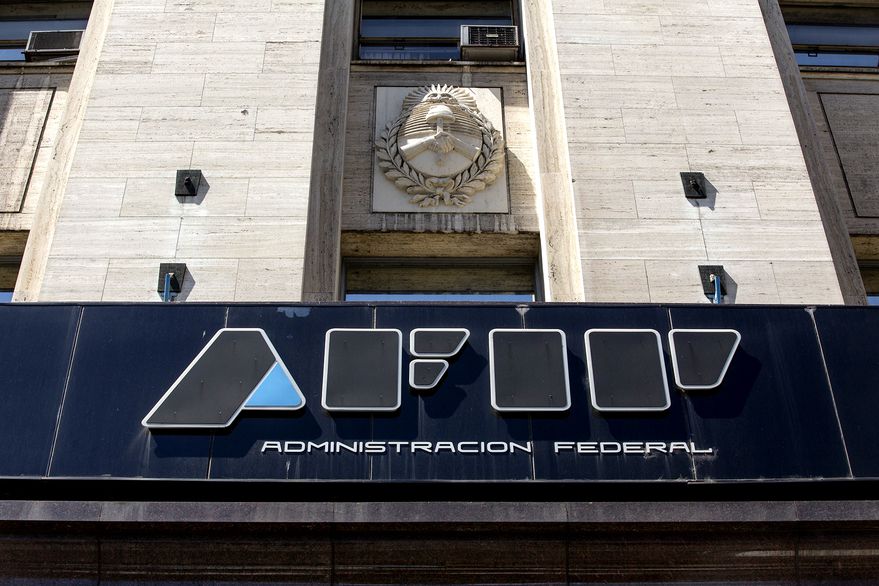The narrow fence - El cerco estrecho

The Federal Administration of Public Revenues (AFIP) is the “autarkic” organism dependent on the Ministry of Economy of the Nation in charge of the collection of national taxes in Argentina.
Given the current economic situation in the country where there is basically no plan to reduce inflation or to reduce the fiscal deficit, the agency is increasingly required to obtain greater genuine income, although this suffocates small and medium-sized companies and also to the big national and multinational companies.
Of course, it also puts pressure on personal taxpayers, perhaps with a bit more focus on what is called monotributistas here, which are those who, working independently, invoice for the goods and services they sell, within that range there are many people who Driven by the scarce genuine employment that is offered, they choose this option to obtain the necessary income for their development and that of their family.
At this time, AFIP is also putting its eye on cryptocurrencies and has already required some local exchanges to report on buyers at the regional level, focusing at the moment precisely on monotax holders, although doubt that they will later extend the control over employees. in relation to dependency.
At the beginning of 2021, the body had already alerted exchanges about the obligation to complete the information regime 8126, which refers specifically to the administration and intermediation of virtual accounts, virtual wallets, investment and financing.
This regime obliges cryptocurrency operators to biweekly identify accounts and movements in cryptocurrencies, as well as the balance of those same accounts at the end of each month, the scope of the information is not only for local movements but also includes transfers to and from foreign exchanges and P2P movements.
Something to highlight is that this type of regulation and its obligatory nature reaches only exchanges with the jurisdiction of Argentine laws, so those that operate in the country but under other legal and tax regimes such as Binance for example, are not obliged to give that information. A shot for the side of justice my grandmother would say.
Aunque no deseo ser portador de malas noticias, creo que este tipo de comportamiento se replicará más tarde o más temprano en muchos países de la región.

La Administración Federal de Ingresos Públicos (AFIP) es el organismo “autárquico” dependiente del ministerio de economía de la Nación encargado de la recaudación de impuestos nacionales en la Argentina.
Dada la actual situación económica del país donde básicamente no hay un plan para disminuir la inflación ni tampoco para reducir el déficit fiscal, el organismo se ve exigido cada día más para obtener mayores ingresos genuinos, aunque esto ahogue a las pequeñas y medianas empresas y también a las grandes nacionales y multinacionales.
Por supuesto que también presiona sobre los contribuyentes personales, quizás con un poco más dirigido a lo que aquí se da en llamar monotributistas que son aquellos que trabajando en forma independiente facturan por los bienes y servicios que venden, dentro de ese rango hay muchísimas personas que empujados por el escaso empleo genuino que se ofrece, optan por esta salida para obtener los ingresos necesarios para su desenvolvimiento y el de su familia.
Por estas horas la AFIP también está poniendo el ojo en las criptomonedas y ya ha exigido a algunos exchanges locales que informen sobre los compradores a nivel regional, centrándose en estos momentos justamente en los monotributistas, aunque pocos dudan que luego extenderán la fiscalización sobre los empleados en relación de dependencia.
A principios del 2021 el organismo ya había alertado a los exchanges sobre la obligatoriedad de cumplimentar el régimen informativo 8126 que se refiere taxativamente a la administración e intermediación de cuentas virtuales, billeteras virtuales, inversión y financiamiento.
Este régimen obliga a los operadores de criptodivisas identificar quincenalmente cuentas y movimientos en criptodivisas, así como el saldo de esas mismas cuentas al cierre de cada mes, el alcance de la información no solo es para movimientos locales sino también incluye transferencias desde y hacia exchanges extranjeros y movimientos P2P.
Algo para destacar es que este tipo de reglamentación y su obligatoriedad alcanza solo a las exchanges con jurisdicción de leyes argentinas por lo que aquellas que operan en el país pero bajo otros regímenes legales e impositivos como Binance por ejemplo, no están obligadas a dar esa información. Un tiro para el lado de la justicia diría mi abuelita.
Aunque no deseo ser portador de malas noticias, creo que este tipo de comportamiento se replicará más tarde o más temprano en muchos países de la región.

Las fotografías son de mi propiedad excepto aquellas en las que menciono la fuente.
The photographs are my property except those in which I mention the source.
Héctor Gugliermo
@hosgug
Posted Using LeoFinance Beta